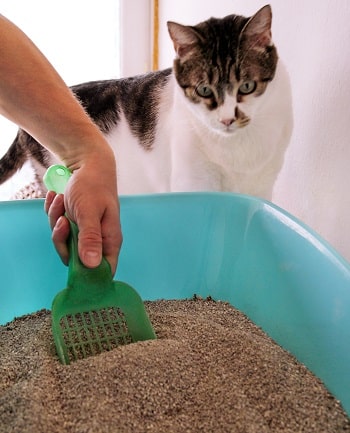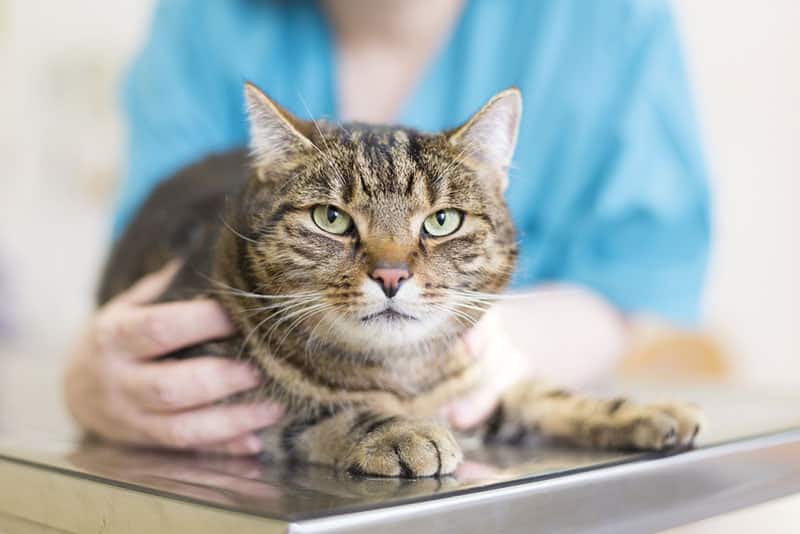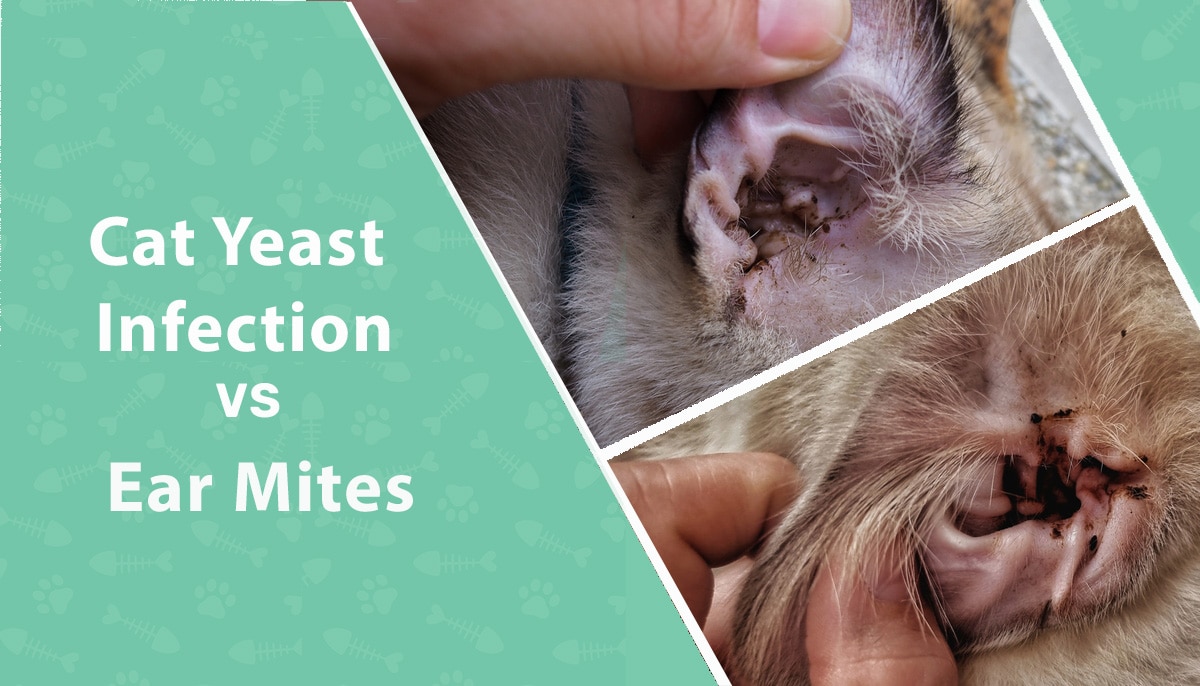Is your cat not using the litter box? Use this checklist to see what problems are at play, as you need to take your cat to the vet. Most of these causes can be serious, and you should always suspect an underlying health issue first that should be ruled out by the vet. Afterward, you can explore the other potential causes, but only when your cat has had a clean bill of health.
If your cat is urinating frequently and passing only small amounts of urine at a time that may be blood stained or red, or if they are in and out of the litter box, straining, meowing, struggling to defecate, or having diarrhea, they should be checked by your vet immediately. We cannot emphasize how serious urinary issues are, and they may indicate a blocked bladder, which is a life-threatening condition if left untreated or significantly delayed from the first onset of signs.

The 6 Possible Causes Why Your Cat Is Not Using the Litter Box
1. Medical Issues
With a cat not using the litter box, you should get them checked out by your vet, as the most common cause may be an underlying health issue. They may be peeing or pooping outside of the litter box in strange places, or they may be straining to pass either urine or feces, leaving spots around the house, as well as in their litter box.
Medical issues, like urinary tract disorders, commonly referred to as feline lower urinary tract disease (FLUTD), are a common — and serious — reason for a cat not using the litter box. This may be due to inflammation, presence of crystals or stones in the urinary bladder, urethral spasm, infection, urethral obstruction, infection, and more. All of these need urgent veterinary care, as they can result in urinary blockage which is fatal if left untreated.
However, cats that are having issues with defecation, either constipation or diarrhea, may be going outside of their litter box due to the pain and urgency of the condition. Cats with injuries and older cats suffering with arthritis may struggle to get into their litter box and start to associate it with discomfort. They will need a different litter box that they can use comfortably, and your vet may advise painkillers and joint supplements.
Systemic and organ system disease, such as diabetes and kidney disease, that cause an increased thirst may also lead to cats peeing more often than normal and leaving spots around the house.
If your vet has ruled out these most common health issues, let’s look at other explanations for your cat choosing not to use their litter box.

2. Litter Box Size
Ideally, your cat’s box should be large enough for them to comfortably turn around inside, without his body hanging over the side. You’ll need a smaller litter box for kittens and then bigger when they outgrow it. You’ll also need one with smaller sides for kittens and senior cats so they can get easily in and out of it.
3. Litter Box or Litter Type
Just like us, cats have their own bathroom preferences and a cat not using the litter box might not like the type of litter or the type of litter box.
Some cats like a covered litter box and other cats prefer one that’s uncovered. There are many types of litter boxes out there, so try a variety of them and find out which one your cat prefers.
The same goes for litter. Cats can be quite particular about the type of litter they use. With all the choices, get several that work for you and your cat, and offer them in different litter boxes to see which one your cat prefers.

4. Box Placement
A cat not using the litter box might have difficulty accessing the litter box, or they feel too vulnerable and exposed to other pets or people while using it. Place the litter box in a low-traffic area of your home but not somewhere difficult for your cat to reach. If you have a kitten or senior cat, put a box on every level of your home, so they can get to a box quickly and easily.
If your kitten or cat still chooses to urinate or defecate outside of the box, try placing the box in that exact location in order to entice them to use it. Slowly move the box to a more desirable location, moving it very little every single day.
5. Stress
Household changes can quickly cause stress in your cat, and peeing outside of the litter box is commonly one of the first signs. Adding new people or pets to the household is a common cat stressor.
Identifying the cause of stress and trying to minimize or eliminate it is the best option to battle stress in cats. If this is not possible, ensure that you provide them with plenty of safe hiding places, far from any noise, where they cannot be disturbed, and consider pheromone diffusers that may give your cat some reassurance during difficult times. Speak to your vet and a feline behaviorist about tips on managing stress in your kitty.
6. Not Enough Boxes or Not Clean Enough
If there aren’t enough boxes in a multi-cat household, or if they are not scooped often enough, your cats will find another, cleaner place to go. And I guarantee it won’t be a place you’ll like. Scoop your litter boxes often, at least twice a day, and offer the same number of boxes as you have cats and one extra, as a minimum.
Conclusion
As you can see, there are many reasons why cats may not use their litter box. Keep in mind that, despite it usually being a sign of urinary issues, sometimes, a problem with defecation or diarrhea or even pain due to arthritis, surgery, or injuries may lead to your cat finding other easier places to go to the toilet.
It’s crucial that your vet rules out any underlying health issues, as urinary disorders may lead to a urinary blockage, meaning your cat cannot pee, and their bladder may rupture. This is life threatening if not treated urgently. There are other, less serious causes for cats not using their litter box, and it may be a question of identifying which one applies to your kitty. Your vet and a feline behaviorist may offer valuable help when dealing with this issue.
Read more about cat health and care:
- Hemp Benefits — 6 Hemp Products to Help Keep Your Cat Healthy
- Heat Stroke in Cats: Symptoms, Treatment and Prevention
- Everything to Know About Cushing’s Disease in Cats
Featured Photography ©ysbrandcosijn | Getty Images.










